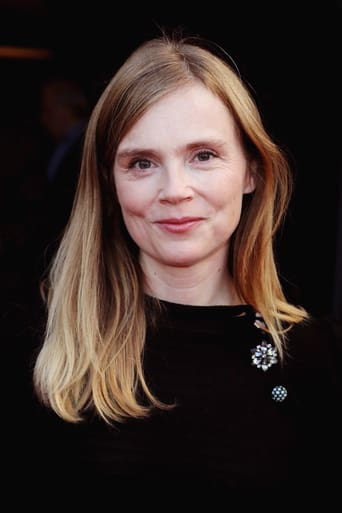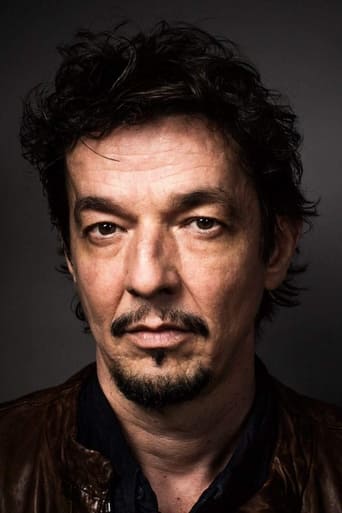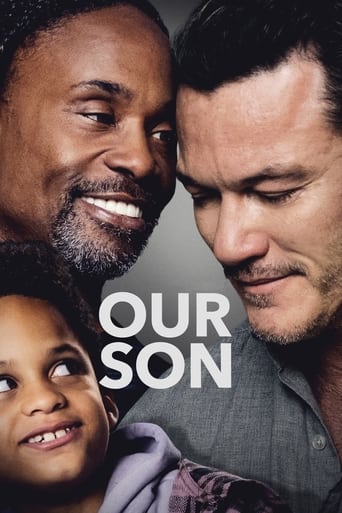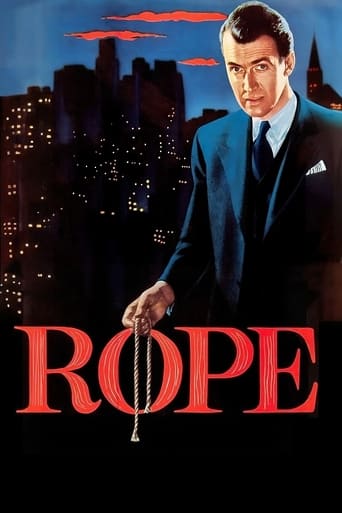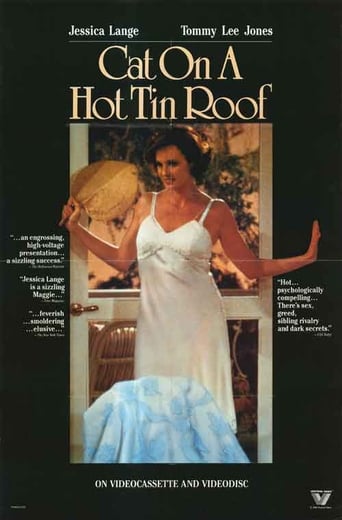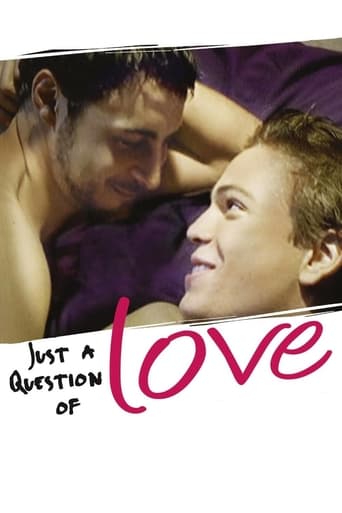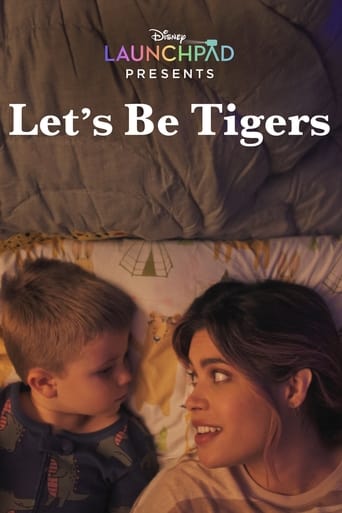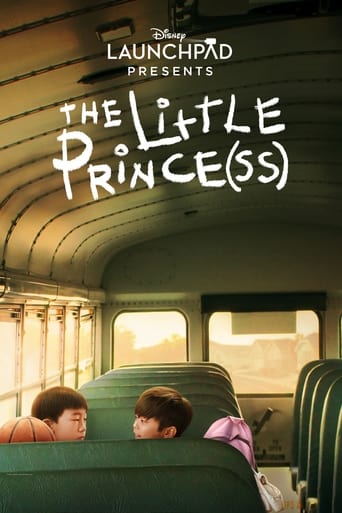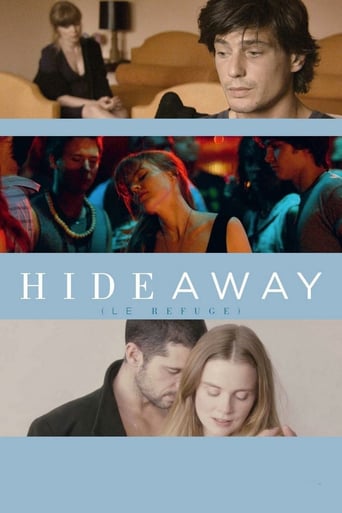
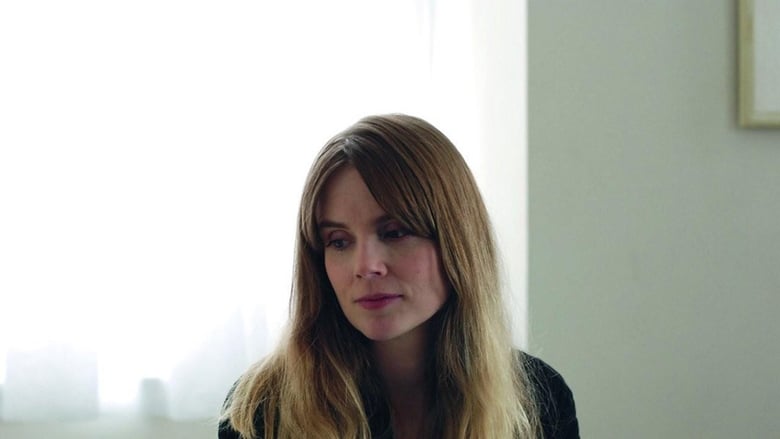
Hideaway (Le refuge) (2010)
Mousse and Louis are young, beautiful, rich and in love. But drugs have invaded their lives. One day, they overdose and Louis dies. Mousse survives, but soon learns she's pregnant. Feeling lost, Mousse runs away to a house far from Paris. Several months later, Louis' brother joins her in her refuge.
Watch Trailer
Cast


Similar titles
Reviews
Don't listen to the negative reviews
Don't listen to the Hype. It's awful
This movie feels like it was made purely to piss off people who want good shows
This is one of the best movies I’ve seen in a very long time. You have to go and see this on the big screen.
By the time this movie rose to the top of my queue I had totally forgotten how it ever got on my queue and had no idea what it was about. I think this turned out to be fortuitous, since from the very beginning you never know quite where the story is going. Not wanting to spoil the effect for those who come to this cold as I did, I will only say that the main character, name Mousse, is a woman of shifting moods and a woman who remains somewhat mysterious. There are men in her life, but the relationships are not predictable.The filming is interesting. A lot of the movie takes place in the night and I found myself turning up the brightness on my TV to make out some of the scenes. Also, a lot of the scenes are back-lit, or are taken from a darkened room with a doorway or window opening onto bright sunlight. On the other hand there are many scenes filmed outdoors in brilliant sunlight. I could never figure out if this was strictly a director's stylistic technique, or whether the contrasts in light and dark were to reflect Mousse's mood shifts.Some may find the pacing rather too measured, but I found this film to be a satisfying character study. I came away with a renewed appreciation for the near infinite variety of human experiences.
The junkie atmosphere versus the bourgeois milieu the first sequences conjure up could lead the director into numbing Chabrol territory,but finally Ozon's innate narration sense keeps the film simple and direct.Chabrol's fans will probably notice the similarities between the beginnings of "Le Refuge " and "La Rupture" (1970):in both movies ,the young man of means runs away with a girl who comes from a much modest family ,then there's a bad trip;and the way the "mother-in-law" treats the girl recalls that of Michel Bouquet in the 1970 effort.When lil' brother comes to visit Mousse,we may fear a rehash of Irish's "I married a dead man" (filmed as "no man of her own" "J'ai Epouse Une Ombre" and "Mrs Winterbourne" ) but fortunately it is not : lil' brother is gay (the gay -or the lesbian- we find in every movie Ozon has made)and moreover ,he 's some kind of black sheep of the family (one sentence the mom said at the beginning is revealing "it's not him who should have died!" ;we only understand it halfway through the movie).That said ,and although the ending makes sense ,there's a tendency in the director's recent work to rest on his laurels .One sees little in "Le Refuge" of the taste for danger he displayed in earlier works such as "Sitcom" "Gouttes D'Eau Sur Pierres Brûlantes" or "Les Amants Criminels"
François Ozon ('Time to Leave', 'Swimming Pool', 'Under the Sand', '8 Women', 'Angel', etc) continues to bring to his films a sense of intimate relationships offered in a style of filmmaking that makes them personal and unique. He often uses the same actors for his films, a trait that makes his work seem truly ensemble in nature. HIDEAWAY (Le Refuge) is a story about the tapestry of love in all its forms and as written by both Ozon and Mathieu Hippeau it is a delicate view of the many facets of relationships. Mousse (Isabelle Carré) and Louis (Melvil Poupard) are young and wealthy and deeply in love, but they are addicted to drugs. In an extended almost wordless scene we watch them inject themselves with heroin in a luxurious Parisian apartment. Days of drug induced idyll are suddenly disrupted one morning when Louis' mother (Claire Vernet) arrives and discovers the couple: Louis is dead from an overdose but Mousse survived and is taken to a hospital where she finally awakens and is informed she is pregnant. After the funeral and burial of Louis, his mother convinces Mousse that Louis must have no heir and sends the confused Mousse her off to terminate the pregnancy. Louis brother Paul (Louis-Ronan Choisy) looks on, empathizing with Mousse. Some months pass and we find Mousse in a seaside country house where she is a recluse during the pregnancy she has decided to keep: Mousse is now controlling her addiction with Methadone. Her only outside contact is the grocer Serge (Pierre Louis-Calixte) who delivers her food until Paul stops by to pay a visit. Mousse allows Paul to stay in her hideaway and they become friends - Paul admits to Mousse that he is not Louis' blood brother but was rather adopted. Paul is gay and not a threat to the very pregnant Mousse. Paul goes into town, meets Serge, and a love affair ensues. The manner in which Mousse and Paul relate and together with Serge form a type of family leads to a rather surprising ending. How the shared relationship with Louis (Mousse's lover and source of her pregnancy and Paul's longtime admiration of his adopted brother) bonds the two provides a surprising but satisfying ending to the story. Isabelle Carré is radiant as the conflicted Mousse and both Poupard (despite the brevity of his role) and Choisy are excellent. This is quality, quiet, intimate filmmaking at its finest. Another little masterpiece from François Ozon. In French with English subtitles. Grady Harp
I.V. drug use and pregnancy don't mix, but that is a fact smoothed over in this chic meditation by François Ozon, who enlisted the actually pregnant Isabelle Carré as the lead. In the prologue, the innocent-looking Emile Berling is the dealer who brings a fatal dose that kills off boyfriend Louis (Ozon's Time to Leave star Melvil Poupaud) and lands girlfriend Mousse (Carré) in the hospital. There, awakening from a drug coma, she learns she is pregnant by Louis. A post-funeral interlude with Louis' posh family follows in which we learn he has a handsome gay brother, Paul (Louis-Ronan Choisy). The parents seem to differ sharply on which sibling they'd rather have given up; the father is devastated by Louis' early demise, the mother feels somehow vindicated. Eventually we get a glimpse at why, though in this pretty film, relationships are more talked about than acted out on screen.Mousse moves to a spacious house in the country near the beach lent her by an older former lover, and here she leads a quiet but rather lonely existence, having groceries delivered by a local, Serge (Pierre Louis-Calixte). Along comes Paul on a visit. Uninvited and at first unwelcome, he nonetheless lingers for a while and hugs, talks, and a visit to an ear-splitting disco follow in which the two bond and details of their lives are revealed. Mousse gets an opportunity to process her relationship with Louis and achieve a degree of emotional closure. However, it seems Paul is a more appropriate parent for her child than she is. Even though he gets drunk a lot, spends his time on the beach, and has a fling with Serge, who turns out also to be gay.Once we've gotten past Louis' and Mousse's empty flat and overused veins in the prologue, Le refuge is beautiful to look at, and its melancholy happens in summer sunlight. It's an upscale, French version of a Hollywood movie, but with the punch-line scrupulously removed. It's just an exploration of themes. But what themes? Certainly drug addiction and pregnancy are not subjects treated in any depth. Using an actually pregnant actress and having various people touch or listen to her belly never keep this from being a strangely clueless tour of expectant motherhood. Mousse periodically quaffs vials of Methadone, but the significance of this for a pregnant woman is barely touched on. One wonders whether, were he not as handsome, suave, and sun-kissed, Paul's presence as a family therapist would be as welcome.Ozon isn't flip or stylistically playful as he is in films like Swimming Pool or 8 Women, or (most of all) Water Drops on Burning Rocks; this is more the serious vein of Time to Leave, and has a feeling that's more lyrical and sweet than any of these, perhaps a bit like Under the Sand. But there is a troubling sense of serious matters alluded to, but insufficiently addressed. Despite reference to such heavy stuff as drug addiction, single pregnancy, and loneliness, Le refuge (doesn't the title itself focus on escape?) makes them all seem too easy, assuaged by sun and sea and a handsome, conveniently undemanding gay man. Le refuge winds up being a vague, glossy advertisement for gay parenthood. In his mid-forties now, the prolific Ozon is moving toward more serious subject matter, but seriousness doesn't always mean depth. His moments of boldness may work better when they're a bit more flip and sassy. Le refuge winds up being flat and obvious, despite its elegance.Le refuge was co-scripted by Ozon with Matthieu Hippeau. After going the rounds of some festivals (it won a special prize at San Sebastian), the film opened in Paris January 27, 2010 to generally lukewarm but not unkind reviews. It has gotten good international distribution and will be released in the US by Strand. It was part of the uni-France/Film Society of Lincoln Center series the Rendez-Vous with French Cinema in March 2010 with screenings at the Walter Reade Theater and IFC Center.


